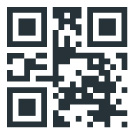NFT applications endure demanding fees on the Apple App store for the convenience of iOS payments and a broad user base.
Apple executes in-use buying to sell services, which is still a measure of looking for NFT apps that use the basic simplicity of in-use purchases for iPhone users and large international users.
As previously reported, Apple has maintained strict rules for irreplaceable OTP applications, deducting a 30 per cent commission on NFT sales purchased in-house.
The implementation of the 30% commission has been a serious problem, and Coinbase Wallet saw its app updates blocked by Apple in December. This is mainly because Apple stopped introducing new apps until Coinbase Wallet banned the use of the ability to push NFT through this app.
In response to a recently proposed digital market bill, Apple is likely to only allow third-party app stores to be set up on machines and devices in the EU by 2024. It is estimated that this will allow developers to assemble instead of payment platforms in ordinary Apple apps, but it is not suitable for China outside the European Union.
Cointelegraph contacted NodleCEOMicha Anthenor Benoliel and explained the harm that NFT applications will continue to operate under Apple Store. Nodle's application rewards users who participate in the unique blockchain technology Internet of things as connection points, and also allows users to build NFT from smartphones.
Benoliel stressed that Apple has a clear basic policy to force NFT app apps to buy and sell all services similar to NFT in the market, so as to prevent users from buying NFT from mobile apps other than Apple app stores and in-app purchases:
It may take a while for them to fully understand the meaning of the Web3 standard, but for now, she seems to be trying to protect her business processes and customers according to this basic policy.
This is in sharp contrast to Android, where application developers can experiment at will, rather than being forced to use Play Store's in-use purchase system to build or market NFT. Even so, Benoliel feels it is good to balance Apple's terms and requirements at this stage.
He stressed that iOS dominates the foreign mobile sales market and uses the role of internal purchase to avoid payment friction for iPhone users:
"the enterprise spares no effort to simplify the purchase steps, making it easier for real estate developers to buy and sell without management methods that are more sensitive to credit card information."
App Store also provides a centralized service to solve the various loan currencies and rates that developers have to manage when implementing bank credit card payment solutions.
Nodle is going to build the infrastructure for its founders so that application users can make a difference. In order to offer this service to iOS users under Apple's current conditions, the site is forced to pass on the cost to users:
"it's a trap. Apple charges 30% of the market price for making NFT. Nodle includes this fee in the user-facing price.
Nodle's NFT seigniorage step allows the user to use Apple within the purchase of seigniorage costs before applying his camera photos or images in the painting court. The Mint-as-a-Service component features a centralized service that uses Polkadot NFT trays to receive and detect images after payment verification before forging NFT.
Benoliel told Cointelegraph that in the long run, Apple could benefit from the right swap and trading of NFT in the app, and it might encourage users to pick alternative solutions:
If you see that upcoming EU law will drive Apple to allow app malls and apps to be replaced without having to pass its App Store, you may wonder whether this will happen abroad soon.
Before that, Benoliel felt that NFT application developers still had reason to think about applying iOS because the use of in-buying was good for trading. The large number of users basically provides a "precious opportunity" for developers to come into contact with general potential users.
The data encryption currency wallet app has also been meeting the special rules for launching in the Apple App Mall. Uniswap, the decentralized exchange, plans to release the iOS app in December, but it has not yet been approved by Apple.















 Tue, 18 Apr 2023
Tue, 18 Apr 2023
